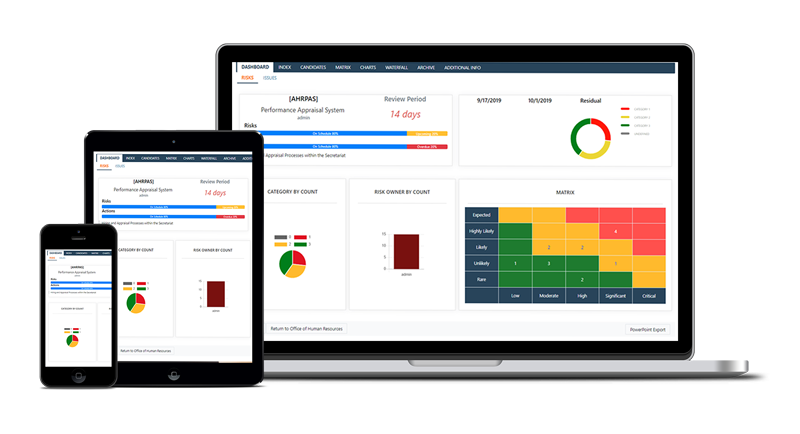Reduce Costs. Remove Uncertainty. Deliver Effectively
Risk Management
Identify More Risks And Assess Them Consistently.
Effective Risk Management is fundamental to the success of any organization. Without taking risks, no significant advances can be made, whether financial, operational, technical or scientific. However, without strong management techniques, risks can become issues, issues become a crisis and a crisis can become a catastrophe.
Risk management seeks to anticipate and address uncertainties that threaten the goals and timetables of a project. By identifying and managing risks today organizations and businesses can plan well ahead of the problem occurrence.
Today’s businesses have to operate in a more competitive and complex market environment than ever before. Top Level decision makers understand the importance of forecasting, identifying and proactively managing risk – as this is usually the difference between achieving business goals and ending in failure.

"Projects with a sound risk process can expect a 15% higher success rate than standard projects together with 17% increase in cost efficiency and 15% increase in schedule efficiency."
Source: Project Management Institute
Project failures are all too common – a few high-profile ones make the headlines, but the cost is always felt. By investing a little time and effort, however, organizations should be able to identify risks at the outset. These risks can be assessed through a range of criteria. The assessment methodology may be basic or complex depending on the environment, but it must always be consistent.
Once the high priority risks are known, mitigation strategies can be set up to reduce the probability of the adverse event occurring, or the size of impact should it happen. Then it is time to “work the plan” and produce timely and accurate reports to Management and the decision-makers.
Why Manage Risk?
Risk is everywhere. Too little exposure to risk will mean innovation and progress grind to a halt; too much and the chances of failure sky-rocket. Aim for the “Goldilocks” approach.
More and more companies have found that they have failed to deliver the expected benefits identified in the business case for change. Budget over-runs are commonplace and the inability of projects to deliver on time has almost become the norm.
A study by Accenture found that, as project complexity increases, only 30 percent of them are being delivered on budget, and only 15 percent are on time.

"Companies in the top 20% of RM maturity generate 3x EBITDA of those in the bottom 20%"
Source: ‘Turning Risks into Results’ Study by EY (Ernst & Young)
Risk management seeks to anticipate and address uncertainties that threaten the goals and timetables of a project. By identifying and managing risks today organizations and businesses can plan well ahead of the problem occurrence. According to the Project Management Institute sound risk management processes reduce the likelihood of project failure, be it financial, schedule or performance based.
Effective Risk Management consistently delivers the one of the highest returns on investment achievable anywhere in the organization.
By investing a little time and effort to embed a sound risk management process, organizations are able to deliver huge increases to bottom line profit. Without effective risk management it is widely recognized that failures are all too common.
However, managing risk is no longer a box ticking exercise that drains company resources, it is a fundamental competitive advantage for those that successfully implement a sound process.
See What IRIS Intelligence Can Do for Your Business
IRIS embeds best practice risk management techniques in a fully automated system that can be instantly customized to match specific customer preferences and reporting requirements.

